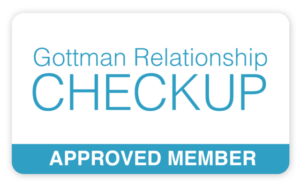
Early in a wanted pregnancy, we become attached to the growing baby—imagining who this little creature will be, how we’ll nurture and protect it, and how life will change with our new family. So when we lose that baby, many of us feel unspeakable despair that’s comparable to many other types of trauma, including post-traumatic stress injury or disorder (PTSD.)
Emotional symptoms after a miscarriage occur in up to 90% of women, ranging from mild to severe grief. You may experience depression and anxiety, anger and irritability, difficulty concentrating, loss of interest, low or absent sexual desire, self-doubt, and disbelief and confusion. Many people will have sleep disturbances and dreams of the baby.
When an adult dies, we grieve for the lost past, but with a baby, we grieve for a lost future, making miscarriage unique from other deaths. All hopes and dreams come to a standstill as we mourn what could have been and feel shock waves into the core of our being. Often mourning continues while trying to conceive again, so getting your period each month can feel like another mini-death, increasing emotional pain. And hormonal changes can cause moods, already fragile, to vary widely.
Why Talking About Your Miscarriage Is Important
Even though this kind of loss is hard to talk about, it’s essential that you give yourself and your partner time to mourn openly without constraint. But would-be comforters, including friends and even the medical establishment, may try to minimize your grief, for example by saying that everything happens for a reason, or you can always try again. This well-meaning advice actually invalidates grief, giving the message that it shouldn’t be publically expressed, only making it more difficult to talk openly. For this reason, psychologists have called miscarriage the silent or invisible loss.
In addition, miscarriage can re-activate old family scripts such as “I am incompetent/unworthy” or “I don’t deserve this.” These painful beliefs associated with pregnancy loss can, in turn, cause us to avoid being with other people. Many of my clients who have had a miscarriage stop going to events where they will have to face pregnant friends or families with young children, with holidays being especially unbearable.
Envy is understandable, as is guilt and self-blame. Did I somehow cause the miscarriage by something I did, like as a strenuous walk or carrying a too-heavy load of groceries? Thoughts can feel like a runaway train with painful ruminations: I could have done something to prevent the loss; my body has betrayed me; I might never have the family I want so much. Relationships can suffer too, especially when both partners grieve, but in different ways. The non-pregnant partner may feel they must be strong and supportive even if they’re hurting just as much.
For your healing, it’s essential to be with people who understand and are not critical or dismissive of you by telling you to move on. Beyond that, it may be soothing to find a way to mourn your loss; since few culturally recognized mourning rituals exist, you can make your own, such as creating a memorial or writing letters to the lost baby. When I lost my pregnancy at 16 weeks, my husband and I spent a weekend walking on the shore collecting shells and stones. When we found the shell that seemed to speak to us as “her” shell, we took it home and found a place for it on a special shelf where it still sits today, 20 years later.
What can you do to help yourself after a miscarriage?
- Take time for self-care, especially keeping in mind the hormonal and physical changes you’re experiencing.
- As time passes, find pleasurable activities where you feel competent.
- Consider creating a grief ritual.
- If your friends and family aren’t taking your feelings seriously, consider psychotherapy as a safe place where you can get validation and empathy.
- Talk about your loss.
If you feel shushed up by friends and family, these are some ways you can ask for the right kind of support:
- Don’t give me advice or try to fix it.
- Give me time to talk and to cry.
- Understand that I’m going to skip some events during times when I’m hurting.
- Don’t tell me to get over it or move on as if my loss isn’t real and significant.


Leave a Reply